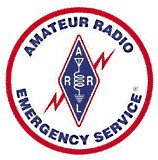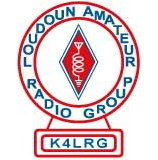Loudoun ARES - LARG Operations Plan for Reston Century Ride 2010
Mission: Provide radio communications for the Reston Bicycle
Club on Sunday August 22, 2010.
Procedures: This will be a directed voice net operation. All
communication will be on the primary frequency unless directed by net control to
secondary frequencies for the handling of traffic. The net control will be located at the
home of Gary NC4S. Net control will use the call sign of K4LRG.
Net Primary frequency will be simplex 147.480 MHz with a sub audible tone of 100 Hz.
Net secondary frequency will be 443.00 MHz with sub audible of 88.5 Hz. This is the N2LEE repeater.
The cross band repeater in Reston provide by AI1V will utilize 445.925 MHz using sub audible tone of 100 Hz for the uplink in Reston to the simplex 147.480 net frequency.
Note: the sub audible tone is used to reduce interference that is experienced in the Reston Town Center.
The APRS systems will use 144.390 MHz for its operations
Schedule:
Site installations at rest stops start at 5:30 AM Sunday August 22, 2010. Station captains will decide on exact time for setting up their stations at the rest stops. However sites should be installed and operational by 6:30 AM net check in and test time.
Full net operations will commence at 7:00 AM in support of the ride. Riders will be on the course at that time.
All stations should note during the test period what stations they can receive and provide a report to net control when asked.
Net control will establish the net at 6:30 AM and will begin station check in and testing.
All sites and stations should remain operational until told to secure by net control.
Sites:
Net control operators; Gary Quinn, NC4S, Ken Sullivan, KJ4GYL, and John Westerman, WB5ODJ. Gary will start net operations at 6:00 AM, John and Ken should arrive at 7:00 AM. They will stay at net control and rotate as net operator until net close.
Reston Town Center (RTC) operators; AI1V, Rick Miller, is the station captain and he will be assisted by; Z Tyrlik, KU1T (will leave early), Bill Robbins, KJ4VTH and Trisha Wells, KI4PCM special liaison to the RBC. The RBC contact at Reston site is Ken Thompson, cell 703-505-8955. Please use Trisha, KI4PCM as the primary contact with the RBC (use radio contact first then her cell 703-973-2119). All operators will stay on site until close of net. Trisha (KI4PCM) will supply APRS equipment on site.
Ashburn rest stop operators; KI4TXP, Jay Ives is the station captain and he will be assisted by; Anna Tyrlik, KJ4EOS, Luther Guise, K5NOB. RBC will open the rest stop at 7:00 AM and they are planning to close Ashburn at 4:00 PM.
RBC contact at site Dan Scrafford, cell 703-955-1676
Hamilton rest stop operators; AI2C, Norm Styer is the station captain and he will be assisted by; Dennis Boehler, KF4TJI, Carol Boehler, KI4TJJ, Paul Dluehosh, N4PD. RBC will open the rest stop at 7:30 AM and plan to close at 3:30 PM.
RBC contact at site; Don Brumbaugh, 703-880-3024
SAG assignments:
SAG-1: Ashburn area (see half-metric cue)
8:00 to ~2:00; with radio operator
Driver: Ann West, RBC, 703-599-2849
Radio: Jay Greeley, KI4UTB
Meet driver: Ashburn rest stop,
Tasks: Return riders that can't finish to RTC, and sweep Ashburn loop, return riders from Leesburg to Ashburn or RTC.
SAG-2: Leesburg to Hamilton and final sweep to RTC (see metric cue sheet)
7:30 to ~4:00 with radio operator
Driver: Mark Brightman, RBC, 703-727-3292
Radio: Doug Johnson, KJ4BRN
Meet driver: Hamilton rest stop
Tasks: Sweep Ashburn to Hamilton, return riders to Ashburn and RTC.
SAG-3: Taylorstown Loop (see Century cue sheet )
8:00 to ~4:00; with radio operator
Driver: John Schiavo, RBC, 703-508-7446
Radio: Kurt Reber, KI4FWB
Meet driver: Hamilton rest stop
Tasks: Sweep the Taylorstown loop, return riders to Leesburg, Ashburn or RTC
SAG-4: Hamilton South and West Loops (see Century and Metric Century cue sheets)
8:00 to ~4:00 with radio opertor
Driver: Chris Mullen, 703-282-9463
Radio: Cheryl Beuring, K0CJB
Meet driver: Hamilton rest stop
Tasks: Relay riders back to Hamilton, provide backup for other Sags. Final sweep of Hamilton loops.
Please continuously patrol your route, Look out for sign tampering, and carry the
following supplied by the RBC driver:
Tire pump, tire levers, adjustable wrench, spare tubes (RBC will provide paper towels extra
water, first-aid kit (RBC will provide), broom, road mark chalk, map, GPS, pen, paper, incident report forms and extra cue sheets and tie-wrap cutter
Each SAG radio operator should call their respective SAG driver and
coordinate time for pickup, equipment installation and confirm
location.
Operations:
The net control will be located at the home of Gary NC4S. Net control
will use the call sign of K4LRG.
Net Primary frequency will be 147.480 simplex with sub audible tone of 100 Hz.
Net secondary frequency will be 443.00 .
SAG vehicle operators will use 144.390 MHz for APRS SAG riders if possible will provide APRS in the vehicle they are riding in. Please set your APRS to beacon your SAG vehicle number and call. SAG vehicle should beacon every 3 minutes. This is to reduce interference with communications.
Equipment: All stations should have FM capability on 144 and 440 MHz.
All stations will be powered using appropriate battery power to cover
the entire day's operational needs.
We will use tactical call sings where possible:
REST STOPS
Ashburn
Hamilton
Reston
SAGS
SAG 1
SAG 2
SAG 3
SAG 4
BIKE RIDERS
Bike 1 KS1G Steve Greene
Bike 2 KI4CTR Mark Schutt
Bike 3 AA4HS Maitland Bottoms
When using tactical call signs best practice is to use your FCC call
as you complete each exchange. This will keep you legal.
Operation and event Notes:
Station captains, need to set up radios, power, antennas and shelters
for each of their respective sites. If they need resources to fulfill
this requirement please let Gary Quinn or one of the team members
assigned to the rest stop know so that they may assist in providing
the resources needed. You may also set up more than one station for
dual operation on both 144 MHz and 440 MHz.
Electrical power for all radios is to be battery power.
Safety: Make sure that you check antenna positions so that they will
not risk adverse RF exposure, make sure antennas will not contact
power lines, make sure that cables do not create a tripping hazard,
and make sure that you are sheltered and hydrated.
ALL OPERATORS, Be sure that you can be self sufficient for food and
water. I hope that you will be able to receive water at the rest
stops and snacks but it is better to be prepared to take care of your
needs independently. SAG riders especially need to take food and
water with them.
Time and Logs: All fixed stations should keep logs and record traffic. Keep
a log of all communications for your station in daylight savings time in 24 hour format. |

